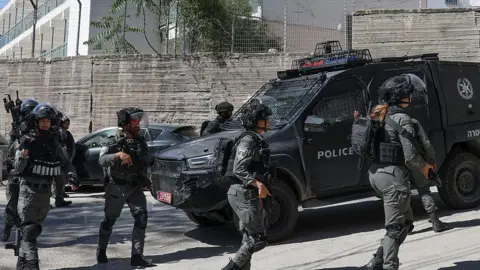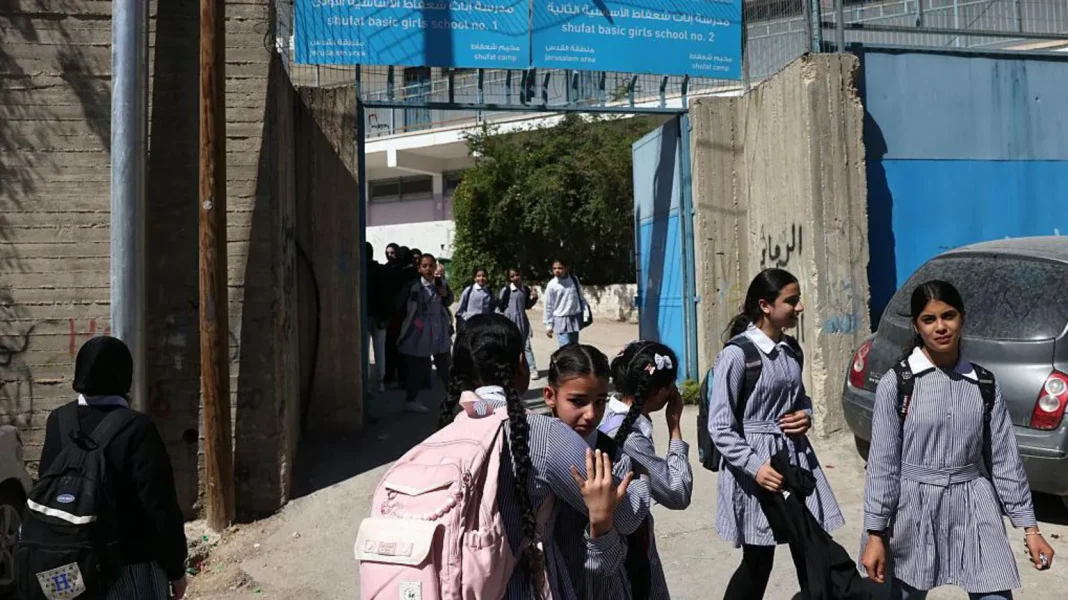2 mn read
The forced closure of three UNRWA schools in East Jerusalem by Israeli security forces marks a significant and controversial escalation in Israel’s clampdown on the UN agency, especially amid heightened international scrutiny over the humanitarian crisis in Palestinian territories.
Key Developments:
- 550+ Palestinian students were sent home abruptly from schools in Shuafat refugee camp, with scenes of emotional distress as children embraced outside.
- A UNRWA staff member was detained, and Israeli police reportedly deployed to three additional schools, effectively shutting down multiple educational facilities.
- Israel’s justification for the closures stems from its claim that UNRWA has been infiltrated by Hamas, though UNRWA firmly denies this, asserting its neutrality and long-standing UN mandate to serve Palestinian refugees.
- A formal closure order, citing the prohibition of educational operations, was posted at the schools — signaling a broader enforcement of Israel’s earlier 2024 ban on UNRWA activities in its territory, including annexed East Jerusalem.
International Reaction:
- UNRWA’s Commissioner-General Philippe Lazzarini condemned the action as a “blatant disregard of international law”, emphasizing the legal inviolability of UN premises and the right to education.
- The Palestinian Authority, as well as multiple international governments (UK, EU, Norway, Switzerland, Turkey, Japan), have issued statements opposing the closure and supporting the continuation of UNRWA’s educational services.
- These closures take place as the International Court of Justice begins hearings on Israel’s responsibilities toward Palestinians — a parallel process that may have legal and diplomatic consequences.

Broader Context:
- UNRWA has been active in East Jerusalem since 1950 under a UN mandate, providing vital education, healthcare, and aid to Palestinian refugees.
- Israel’s annexation of East Jerusalem in 1980 is not recognized by most of the world, and the presence of over 230,000 Israeli settlers in the area remains a key point of contention.
- Most of the international community views Israeli settlements in East Jerusalem and the West Bank as violations of international law, based on ICJ opinions and the Fourth Geneva Convention — a view Israel contests.
This development may further strain Israel’s already tense diplomatic relations with several allies and exacerbate the humanitarian crisis for Palestinian families dependent on UNRWA services.


